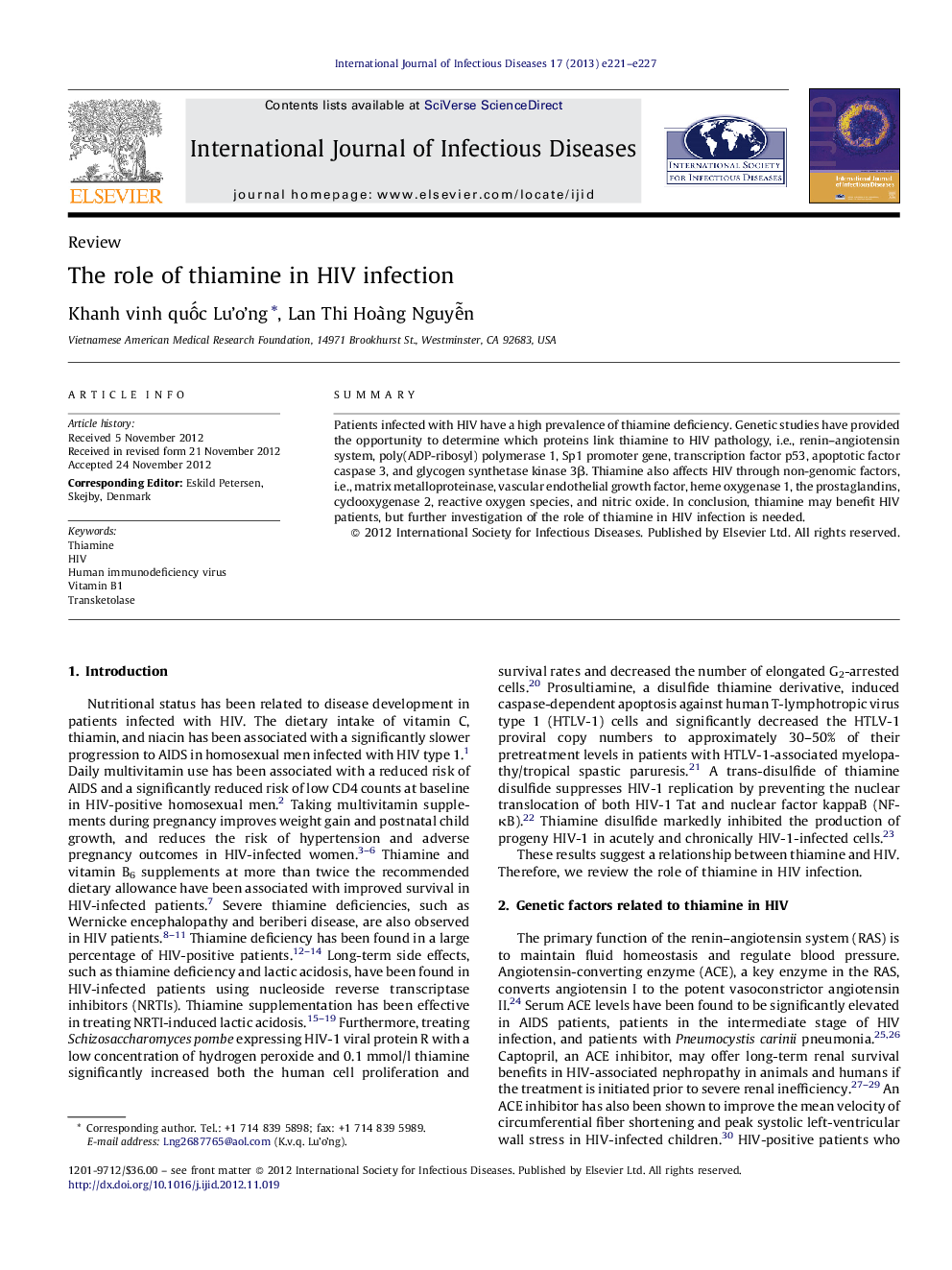| Article ID | Journal | Published Year | Pages | File Type |
|---|---|---|---|---|
| 3363089 | International Journal of Infectious Diseases | 2013 | 7 Pages |
Abstract
SummaryPatients infected with HIV have a high prevalence of thiamine deficiency. Genetic studies have provided the opportunity to determine which proteins link thiamine to HIV pathology, i.e., renin–angiotensin system, poly(ADP-ribosyl) polymerase 1, Sp1 promoter gene, transcription factor p53, apoptotic factor caspase 3, and glycogen synthetase kinase 3β. Thiamine also affects HIV through non-genomic factors, i.e., matrix metalloproteinase, vascular endothelial growth factor, heme oxygenase 1, the prostaglandins, cyclooxygenase 2, reactive oxygen species, and nitric oxide. In conclusion, thiamine may benefit HIV patients, but further investigation of the role of thiamine in HIV infection is needed.
Related Topics
Life Sciences
Immunology and Microbiology
Applied Microbiology and Biotechnology
Authors
Khanh vinh quốc Lương, Lan Thi Hoàng Nguyễn,
